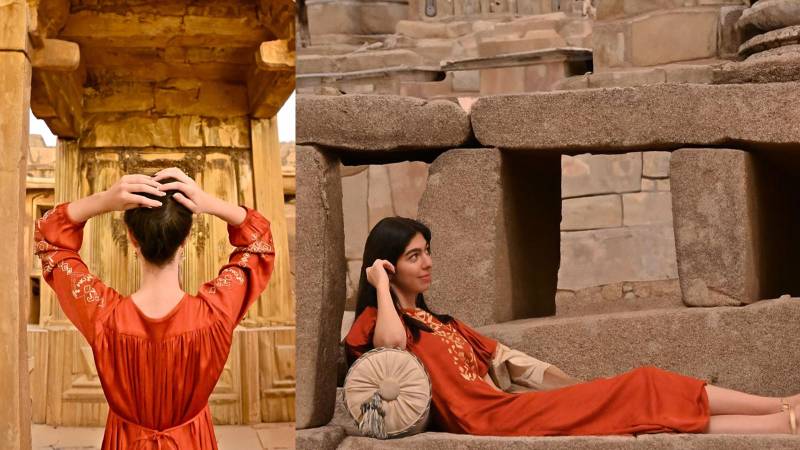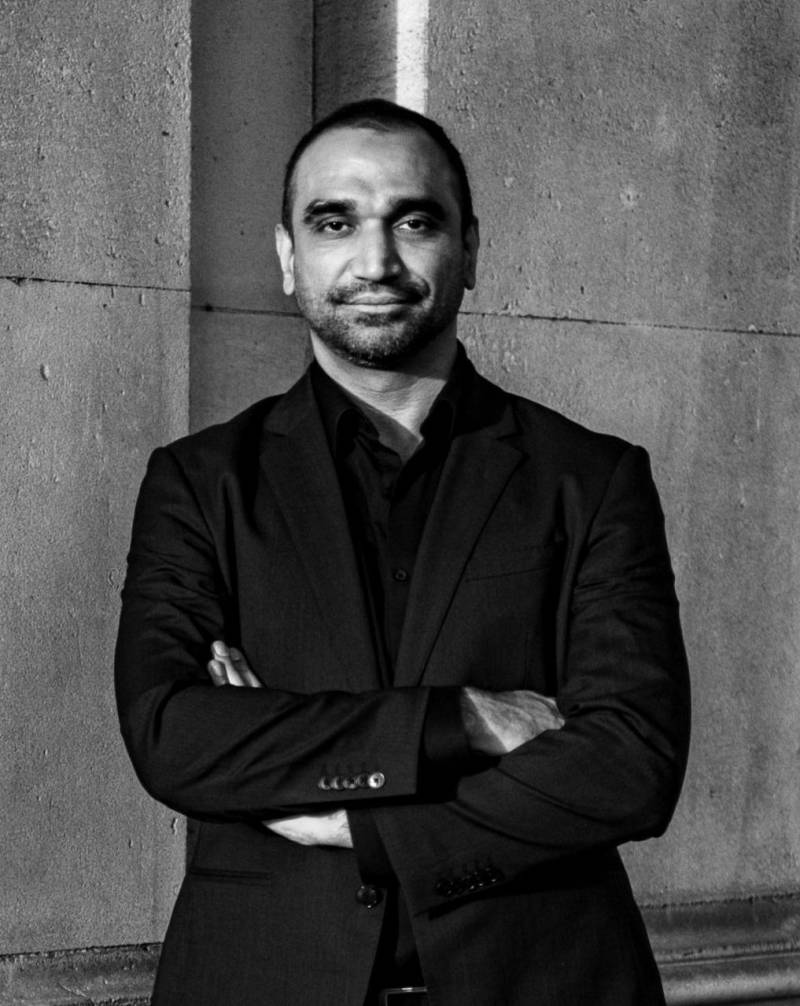
As part of London Fashion Week 2024, London-based fashion designer Omar Mansoor, alongside development organisations Kaarvan Crafts Foundation and the British Asian Trust, showcase and celebrate the skills of 13 women artisan-entrepreneurs from rural Pakistan.
This initiative underscores fashion’s role as a powerful medium for cultural expression and cross-cultural dialogue. By blending diverse traditions, techniques, and aesthetics, this collaboration not only preserves and honours cultural heritage but also creates new opportunities for these talented women to thrive on a global stage.
This journey began with Culture to Couture, a fashion show born out of a passion to showcase the hidden talents of Pakistani artisan-entrepreneurs, which took place in January 2024 at the Pakistan Embassy in Paris. Culture to Couture was a joint venture between Omar Mansoor and Kaarvan. It garnered widespread acclaim, especially from prestigious French fashion houses, for its stunning display of indigenous hand embroideries crafted by rural artisan-entrepreneurs in Pakistan.
Carrying this vision forward at London Fashion Week with Culture to Couture, Volume 2, Omar Mansoor, Kaarvan and the British Asian Trust aim to bridge culture with fashion. This collection’s theme revolves around revitalizing the Harappan Civilization, also known as the Indus River Valley Civilization, a powerful and thriving society that flourished from 3300 to 1300 BCE. The significance of clay terracotta lies in its enduring legacy as a representation of the soil, with clay still widely used for pottery and household utensils to this day. Omar’s collection features a fusion of these clay terracotta red hues and ochre indigenous motifs, evoking nostalgia for the past while shaping our vision of home, security, and comfort for the future.
Omar Mansoor remarked, “This collection highlights fashion's role in cultural exchange between nations and craft conservation while empowering women artisans and advancing gender equality. Traditionally, in fashion there is confidentiality statement that kept artisans anonymous, but this collaborative collection brings rural women artisans to the forefront by naming and tagging them on social media, so buyers know who made their clothes.”

Danish Khan, CEO of Kaarvan Crafts Foundation, adds, "This ongoing exchange of knowledge fosters creativity and innovation, while upholding the values and practices passed down through generations, empowering these women to remain central to the global narrative of cultural identity."
In this way, fashion becomes more than just an aesthetic choice—it becomes a living, evolving testament to cultural heritage and resilience where rural women artisan-entrepreneurs gain visibility and forge international connections to strengthen their local enterprises and enhance their livelihoods.
The artisans behind this collection have been supported through the British Asian Trust’s Driving Women's Economic Empowerment programme supported by the UK government’s Foreign, Commonwealth & Development Office's UK Aid Match fund and the Rangoonwala Foundation. With this support the British Asian Trust takes a multifaceted approach encompassing skills development, entrepreneurship training, and access to finance to promote women's economic development and financial independence. It works with partners to enhance access to skills, markets, networks, and services, leading to a long-term increase in incomes. Representatives of the British Asian Trust attending the show include Jane Mariott CMG OBE, British High Commissioner to Pakistan, and Asif RangoonwalaCBE, British Asian Trust Trustee and Chair of the Rangoonwala Foundation, to celebrate this accomplishment by the artisans.
KamylaMarvi, British Asian Trust’s Pakistan Director, said: “I am proud having witnessed the journey of these artisans. Hailing mostly from urban low income communities in Pakistan, these women learnt skills and honed their craft over the course of this project and now their work is being showcased at one of the most prestigious fashion events in the world. This proves with the right support, resources and opportunities, marginalised women can build better futures for themselves, their families and communities.”
Culture to Couture, Volume 2 continues to support sustainable livelihoods by empowering traditional skills to drive economic stability and growth. Fashion thus becomes a transformative force, bridging past and present while nurturing the future of women led enterprises.

